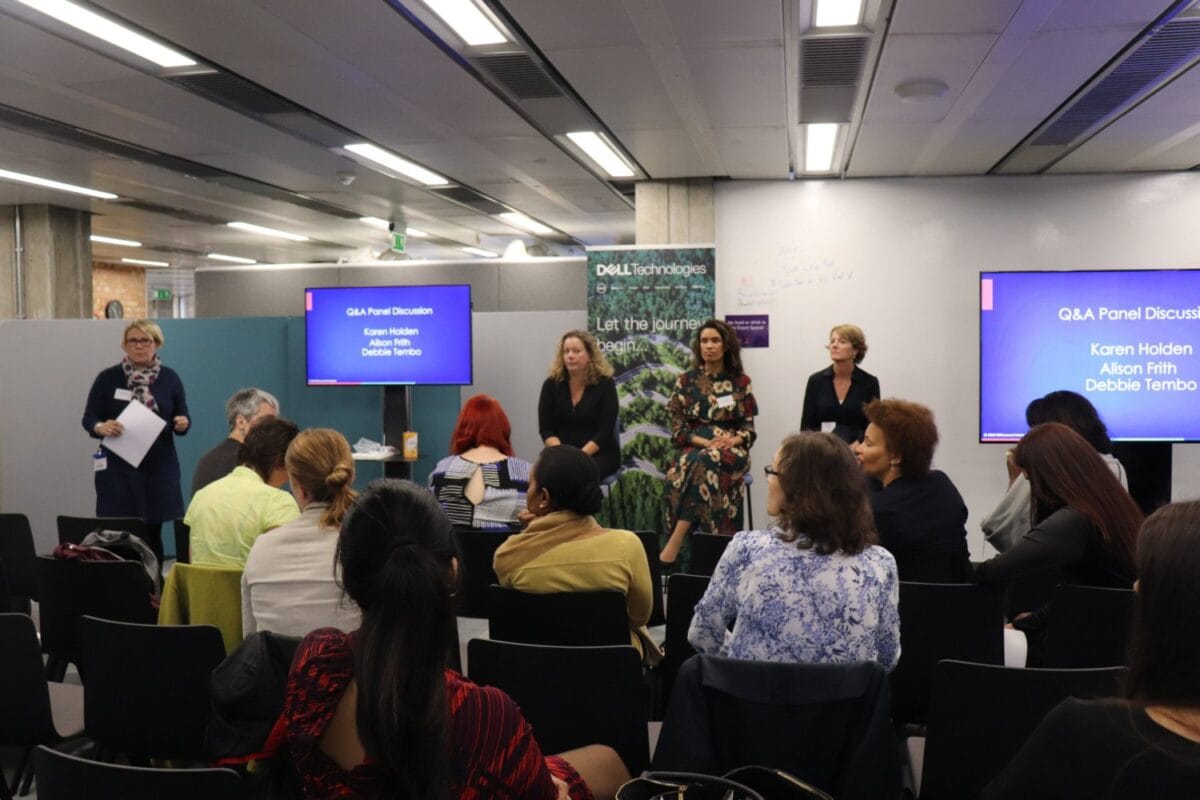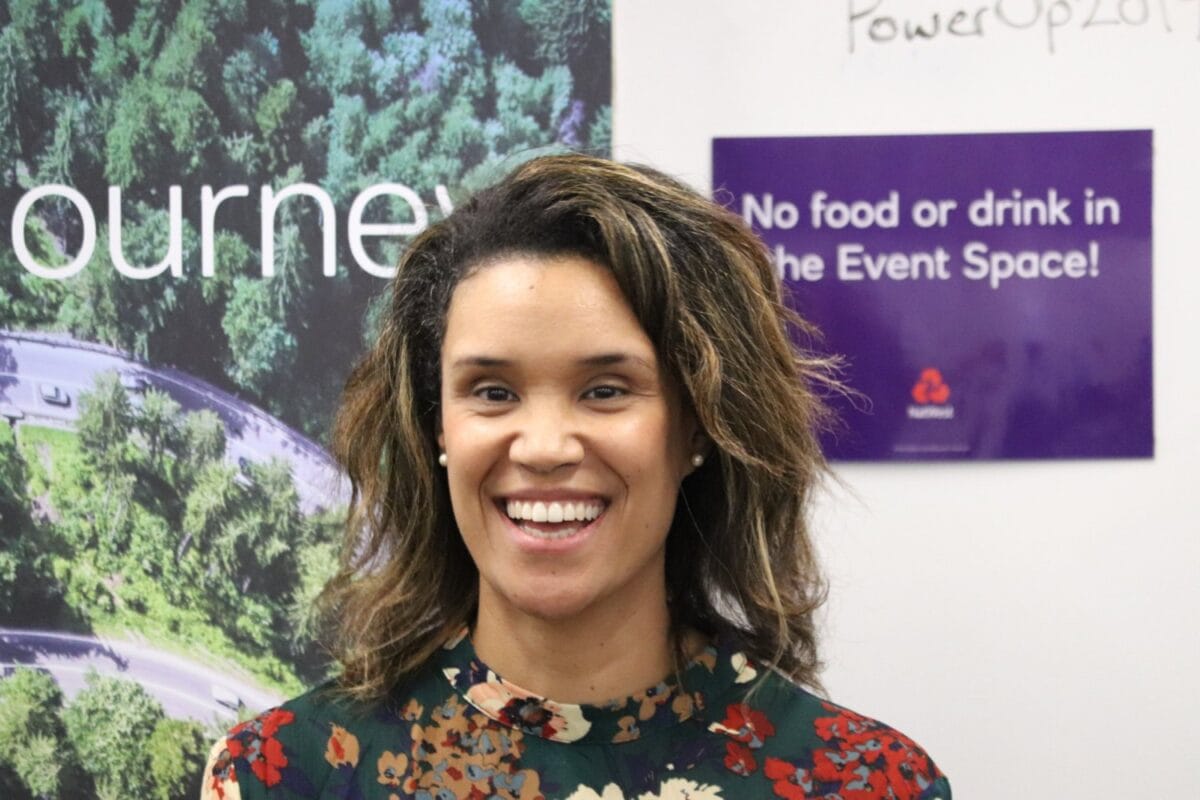A diverse and inclusive workplace is one that makes everyone, regardless of who they are or what they do for the business, feel equally involved in and supported in all areas of the workplace. The “all departments” part is important. Diversity and inclusion are essential in business today as a healthy variety of people from different backgrounds and cultures provides us with the balance of voices and diversity of thought that we need, D&I brings a lot of benefits for the companies. In the UK there are the Black British Business Awards, which celebrate the exceptional performance and outstanding achievements of black professionals and business owners in the UK, I had the opportunity to talk to Debbie Tembo, the Managing Director, we talked about the importance of D&I for the business.
You are the Managing Director of, Black British Business Awards, what is the impact of these awards in UK society?
The Black British Business Awards amplifies the exceptional contribution to the UK economy of Black professionals and entrepreneurs across six categories. You can only be what you can see in the world and so it is important to challenge the stereotype that many hold of what it means to be a Black person in the UK. The awards do this by shining a light on the excellence of these talented individuals who are role models to so many within their organizations, industries, and communities.
Debbie, you have always had a very strong interest in diversity and inclusion (D&I) having extensively advised FTSE100 and professional services firms about the strategic importance of D&I. What is the importance of D&I in the business? How do they benefit the companies?
Organizations that place diversity and inclusion at the heart of their business strategy as an imperative to commercial success, often outperform their competitors. D&I focuses on unlocking the potential of people in a company to ensure they can bring their whole, authentic selves to work, and as a result, are able to excel in their contribution.
Without a doubt, a business that enhances the performance of its employees and helps them reach their full potential, has a competitive advantage. People are the heartbeat of organizations and investing in them is essential to business success.
Why wouldn’t you want to create an inclusive work environment where you nurture the best talent and reap the benefits from such an approach?
Let’s be frank – optimizing the talent and opportunities of ethnic minority groups, as with all historically and systemically disadvantaged groups, isn’t just good business sense, it is also the ethical thing to do.
It is time for businesses to hold up a mirror and tackle the systemic and cultural barriers that still obscure the everyday experiences of, and impede the progression of, ethnic minority talent.
“Being inclusive from the outset helps remove the barriers that create separation and enables everyone to participate in the world equally”
How can society: Government, NGO, private sectors, universities among others, foster Diversity, and Inclusion in the world?
Government has a key role to play in supporting regulation that fosters diversity and inclusion in the world and levelling the playing field, such as pay gap reporting.
Overall, I believe change will come from encouraging a mindset of difference, rather than group think.
Institutions can challenge their biases by always asking the question, “who is not in the room?” and bringing in representatives from society to participate in the design and development of policy and product. Being inclusive from the outset helps remove the barriers that create separation and enables everyone to participate in the world equally.
Talking specifically about companies, what should Human Resources departments do to become more inclusive and diverse? Any case of success about it?
Achieving sustainable and measurable change is not an easy process. It requires commitment and active participation from those with the power and privilege to recognise, challenge and change the behaviours and practices that prevent equity and inclusion. Those of us who have been driving towards progress know that difficult processes are easy to shy away from and, if history has taught us anything, it is that the individuals who take upon themselves the responsibility to make a difference are a truly rare breed.
It goes without saying that Human Resources (HR) would be expected to be an important part of the D&I agenda, particularly the advancement of ethnic minority individuals. Human resources can become strategic partners in organizations when they go back to placing people at the forefront of strategy, rather than acting simply as drivers of organizational process.
In the case of diversity and inclusion, data is critical in supporting and measuring the actions taken to address lack of representation within an organization. Although data cannot identify all the solutions to an issue, it does help us understand the extent of a problem and can be used to hold businesses accountable.
However, in the second edition of our report, ‘The Middle: Progressing BAME Talent Through Collaborative Action’ (The Middle), we found that only two-thirds of companies have processes which attempt to capture information about the ethnic backgrounds of individuals in their companies. Additionally, just 20% of respondents publicly disclose the information regarding the number of ethnic minority individuals in their business and 59% say they either do not use, or rarely use, the data to inform their initiatives regarding employees.
Not only do these figures suggest hurdles to information gathering, but they also imply that many senior leaders who are responsible for acquiring data to inform inclusion initiatives do not see data collection as a priority. Most alarmingly, when asked about how often their company board and executive committee receive management information about the progression of minority ethnic talent in their organizations, only 4.3% of HR Directors answered ‘always’ and a striking 42% did not provide an answer. This begs the question: how can businesses work towards progress if they do not fully understand the extent of their problem?
The truth is data contributes to a greater understanding and insight into your employee life cycle and it is imperative to driving strategic decisions. Instead of being overwhelmed and scared of data, HRs would benefit from treating insight as opportunity. Afterall, focusing on building trust and being transparent with employees about how their data is crucial to creating a more diverse and inclusive work environment. Plus, it will go a long way to developing balanced scorecards and talent strategies that drive for greater representation in their workforce and that provide opportunities for everyone to do their best work and thrive in an organization.
“The truth is data contributes to a greater understanding and insight into your employee life cycle and it is imperative to driving strategic decisions”
As well as the challenge with data, The Middle report also highlighted a pervasive sense of discomfort around discussing race in the workplace, which could stifle and hinder progress. For example, fear around honestly addressing race holds allies back from actively engaging in relationship-building with their colleagues for fear of saying the wrong thing. It may also discourage HR from performing their role of challenging unfair informal practices relating to work allocation, bias and questionable outcomes in recruitment and promotion discussions.
With reference to recruitment, there are many ways HR departments can help ensure that the overall process is inclusive. One is to celebrate the value of perspective which can be achieved by ensuring their own HR teams and HR managers are diverse. Indeed, it must be reiterated that the burden of responsibility must not sit with already marginalized employees - a collaborative approach is vital for the progression of minority ethnic talent.
Artificial intelligence technology, like bias decoder tools, can help in identifying potentially problematic words in job adverts. Although beneficial, it must be said that technology should not be treated as the silver bullet to tackling racial inequality in the workplace.
There is also work HR can do to ensure job adverts appeal to a wider and more diverse talent pool. Job adverts must be proactively encouraging and inclusive. It must be clear that non-traditional work experience is welcome, and examples must be provided to affirm this to ensure an ethnic minority individual does not feel unworthy at the first hurdle. Sharing the names of recruiters in the organisation who are people of colour is also subtly reassuring to candidates, along with ensuring ethnic minority recruiters are on LinkedIn and other recruitment sources. Also, companies must do more than just include equal opportunity words, they must be clear about referring to their action plan to create an inclusive workforce.
“D&I is the responsibility of the wider organization, not that of ethnic minority individuals, nor anyone stakeholder group”
Those HR departments with recruiting powers must seek talent from different sources, beyond Oxbridge and Russell Group universities. There are several charities supporting young, ethnic minority people prepare for careers. I urge companies to partner with such organisations.
Corporate diversity programmes have historically failed because big business has not reached a consensus on what action is needed to deal with the structural issues that create barriers to progression, inclusivity, and diversity. And let’s be clear D&I is the responsibility of the wider organisation, not that of ethnic minority individuals, nor anyone stakeholder group. However, HR Directors do play a critical role in D&I. This stakeholder group can help shift the organisational narrative of cultural diversity and under-representation as a ‘problem to solve’ to a ‘resource that is under-utilised’, normalise discussions about race and establish a shared vocabulary.


